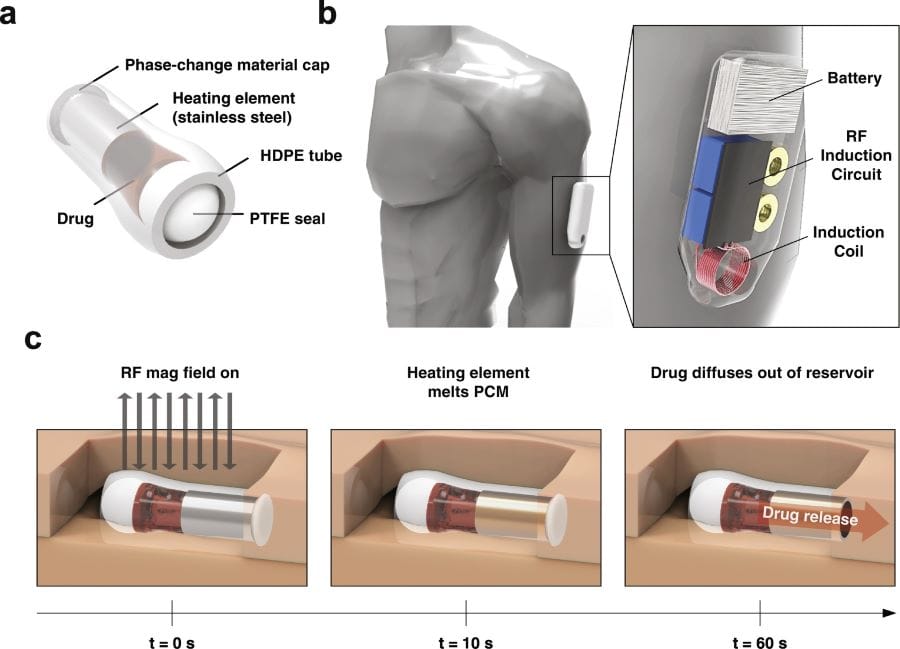Overdose happens when opioids bind to receptors in the brain that regulate breathing, causing a person to hypoventilate and die. In the US, approximately 130 people die every day from opioid-related overdoses and it is now the leading cause of death for people under the age of 50.
Nanofluidic drug delivery targets chronic disease
Shape-changing robot promises targeted drug delivery
Worn on the arm, the prototype device uses EKG (electrocardiography) signals to detect when a person’s respiration rate decreases to a certain level, then releases naloxone which blocks the opioid from binding to brain receptors. The system was developed by scientists and engineers at Purdue University and is described in the Journal of Controlled Release.
“The antidote is always going to be with you,” said Hyowon “Hugh” Lee, an assistant professor of biomedical engineering at Purdue. “The device wouldn’t require you to recognise that you’re having an overdose or to inject yourself with naloxone, keeping you stable long enough for emergency services to arrive.”

According to the Purdue team, wearing the device would be similar to wearing an insulin pump. The current proof of concept is an armband with a magnetic field generator, connected to a portable battery worn at the hip. A sticker-like EKG sensor on the skin measures respiration rate. When the sensor detects hypoventilation, it activates the magnetic field generator which heats a drug capsule in the body, releasing naloxone in 10 seconds.
The capsule would have to be pre-inserted in the body in an outpatient setting and the naloxone would buy the user about an hour before relapse, an hour that would potentially allow paramedics to intervene and treat the overdose more comprehensively. Since submitting the work for publication, the researchers have downsized the magnetic field generator and battery so that the device is less bulky.
“The goal is to make the whole system unobtrusive, so that you don’t feel like you’re having to wear something large all the time,” Lee said.
The team also plan to build a communications system into the device that would automatically alert emergency services when the patient has overdosed, as well as expand the range of drugs that the capsule can deliver.
“People with allergies need epinephrine right away,” said Lee. “This setup might remove the need for an epi-pen.”











IET sounds warning on AI doll trend
I agree that we need to reduce cooling water demand for servers. And yes, generative AI consumes a large amount. But what about BitCoins? Their...